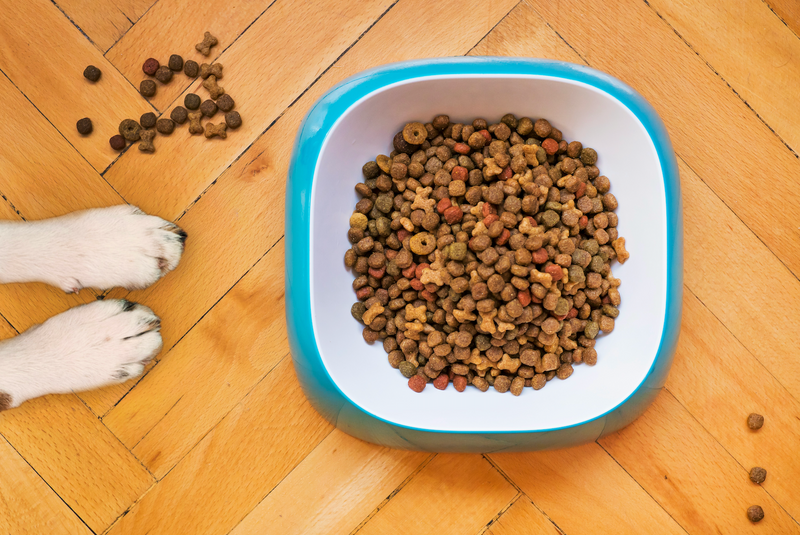It's really important to keep an eye on dog food recalls. Some recalls might not be a big deal, but others can be very dangerous and could even put your dog's life at risk. Keeping up with the latest recall news isn't just being careful; it's a way to protect your dog from getting really sick or facing something even worse.
By watching for these recalls, dog owners can quickly get rid of any dog food that might be bad, before it can hurt their pet. This careful watch over what your dog eats makes sure they stay safe and healthy, showing why it's so important to always be on top of pet food safety.
How Common is Dog Food Recalled?
Dog food recalls happen fairly often and for a variety of reasons, such as contamination with harmful germs (like Salmonella), high levels of dangerous substances (like aflatoxins), mistakes in labeling, and finding things in the food that shouldn't be there. These recalls help make sure that pet food is safe and of good quality.
How often recalls happen changes from one year to the next. This can depend on how good the pet food companies are at controlling the quality of their products, how well new ways of finding contaminants work, and how closely groups like the U.S. Food and Drug Administration (FDA) in the United States are watching over these products. The FDA often posts updates on pet food recalls, which gives us an idea of how common they are.
Top Toxins in Dog Food Recalls
There are more toxins found than you’d think in recalled dog food. You may think there’s only one or two. In reality, there are actually quite a few. Here are some of the most concerning:
- Aflatoxins: These are toxins produced by certain molds (Aspergillus species) that can contaminate grains used in pet food. Aflatoxins are known to cause liver damage in dogs and can be fatal in high doses.
- Mycotoxins (other than aflatoxins): Besides aflatoxins, other mycotoxins like vomitoxin (deoxynivalenol) and zearalenone can contaminate pet food ingredients. These toxins can cause a range of health issues from vomiting and diarrhea to reproductive problems.
- Melamine: This chemical was infamously involved in a massive pet food recall in 2007. Melamine can cause kidney failure when ingested by dogs. It was found in wheat gluten and rice protein concentrates imported from China, used as ingredients in pet food.
- Salmonella: A bacterium that can cause gastrointestinal illness in dogs and humans. Contaminated pet foods can lead to salmonellosis in dogs, characterized by diarrhea, vomiting, and fever.
- Ethylene Glycol: Commonly found in antifreeze, this chemical is highly toxic to dogs even in small amounts and can lead to acute kidney failure.
- Propylene Glycol: Used as a moisture retainer in some types of pet food, it has been linked to health issues in dogs, including Heinz body anemia. Although not toxic in small quantities, it has been banned by the FDA in cat food due to its potential health risks.
How to Protect Dogs on a Daily Basis
Probiotics play a crucial role in maintaining gut health in dogs, potentially reducing the absorption of toxins and promoting overall well-being. Similarly, bioclay acts as a natural detoxifier that can help neutralize toxins in the digestive system, offering an additional layer of protection for dogs exposed to contaminated food.
Integrating probiotics and bioclay into a dog's diet can enhance their resilience against toxins in dog food, and support their digestive and immune functions, contributing to a healthier and happier life for our canine companions.
FullBucket offers two products that could reduce damage caused if they’re exposed to toxins.
Daily Dog
Daily Dog helps boost the immune system and supports digestion in adult dogs. In addition to probiotics, this product contains prebiotics, digestive enzymes, and L-Glutamine. Inside each scoop, your dog benefits from:
- Saccharomyces boulardii: 5 billion CFU’s of a yeast strain of probiotic that is safe to use during antibiotic therapy and supports optimal digestion.
- Probiotics: To support a healthy immune system.
- L-Glutamine: Supports a healthy gastrointestinal lining.
- Prebiotics: Support a healthy microflora.
Veterinarians have developed it, and it undergoes third-party testing, allowing you to personally verify the contents of the product.
BioClay + Paste
Bioclay, like FullBucket’s Bioclay + Paste, can be a helpful product due to its toxic-binding properties. In addition to supporting toxin removal, bioclay can:
- Help maintain normal fluid balance
- Support a healthy digestive system
- Promote healthy microflora
- Aid in the absorption of key nutrients
FullBucket’s Bioclay + Paste contains 1.5 Billion CFU’s of Saccharomyces boulardii, a yeast-based strain of probiotic that continues to work even if your doggo is taking antibiotics.
Check Before Purchasing: Allow Recalls to Be a Reminder
Dog food recalls serve as a critical reminder for pet owners to prioritize the safety and quality of the food they provide to their canine companions. Implementing proactive measures, such as regular health check-ups, dietary assessments, and toxin-free feeding practices, can significantly contribute to the long-term well-being of dogs.
By staying informed, vigilant, and proactive in addressing potential risks and challenges related to dog food recalls, pet owners can protect their dogs and promote a healthier, happier life for their beloved pets.
Read More:
The Fusarium Toxins Deoxynivalenol (DON) and Zearalenone (ZON) in Animal Feeding
Ethylene Glycol Toxicosis in Dogs and Cats
Photo by Mathew Coulton on Unsplash

